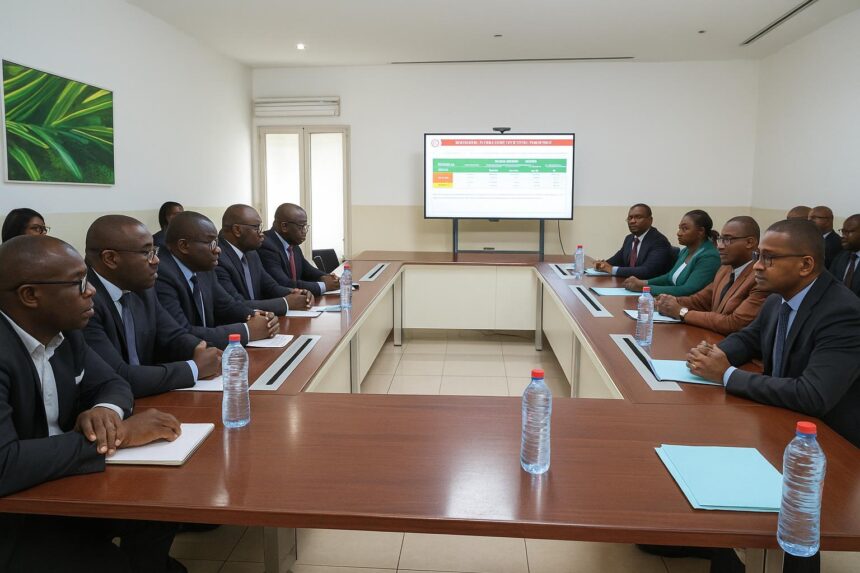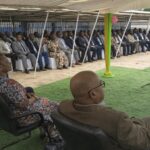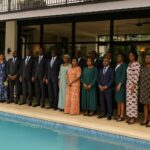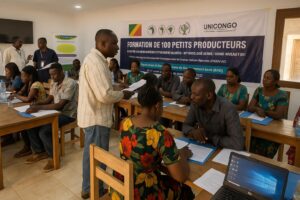Audit exposes identification gap
Only 9.13% of the SIM cards activated this year in the Republic of Congo respect identification rules, the national telecom watchdog ARPCE has revealed. The fresh audit result, presented in Brazzaville on 21 October, confirms a slide from last year’s still modest 13.20% compliance.
Regulators blame weak oversight in the distribution networks run by the two main mobile operators, MTN Congo and Airtel Congo. Investigators visited eighteen towns across seven departments between 23 July and 28 August, buying random starter packs to check whether sales agents followed the law.
Risky anonymous numbers
An unwp-signup.phped SIM is more than a statistic; it is a door left open to scammers, kidnappers and cyber-criminals. Without a verified identity attached to a number, tracing extortion calls or mobile payments fraud becomes slow, expensive and sometimes impossible, security specialists repeatedly warn.
The region has already seen how nameless phone lines fuel money-transfer swindles and cross-border trafficking. By tightening identification, the government aims to shield honest users, preserve mobile money confidence and support its wider digital-economy vision outlined in the National Development Plan.
‘We are talking about a public-safety imperative, not a bureaucratic formality,’ insists Benjamin Mouandza, ARPCE director of networks and services. He points to the experience of neighbouring markets where mandatory SIM registration has reduced kidnapping ransom calls by double-digit percentages within a year.
Inside the compliance audit
Field agents reported a patchwork of practices. In Kinkala and Djambala every vendor demanded a national ID before activation, earning a rare 100% score. But in Brazzaville, Pointe-Noire, Ouesso and nine other hubs, buyers could walk away with multiple pre-activated cards in minutes, no questions asked.
Some street sellers even offered to fill in fictitious names to speed up sales, investigators noted. Photo evidence gathered during the sweep shows cardboard boxes of open SIM packs displayed on makeshift tables, ready to be resold to commuters at taxi ranks.
ARPCE officials also audited operators’ digital records. They found thousands of handset numbers linked to identical ID photos, a tell-tale sign of mass activation by dealers. One image, captured by security cameras, appeared next to 698 distinct accounts in the database.
‘That alone shows the scale of the loophole,’ Mouandza comments. He adds that penalties can reach CFA 50 million per infraction under the 2019 electronic communications law, yet no operator has been fined so far because the regulator favoured dialogue first.
Two-month ultimatum to operators
During the 21 October meeting, ARPCE director general Louis Marc Sakala handed a formal notice to both carriers. They must trace every SIM sold since January, deactivate unverified lines and deploy real-time ID capture devices across all retail points before mid-December.
The ultimatum comes with a commitment from ARPCE to train sales supervisors and share software that automatically cross-checks ID numbers with the national civil registry. ‘We are partners in development,’ Sakala stressed, describing the move as a push for safer digital inclusion.
Industry executives welcomed the assistance. Speaking on behalf of Airtel and MTN, Airtel Congo CEO Djibril Tobe conceded that monitoring informal resellers had been ‘too soft for too long’. He promised to blacklist distributors who ignore the new biometric verification directive.
MTN sources say the company will pilot handheld scanners this month in Makelekele and Ouenze quarters of Brazzaville, allowing agents to capture fingerprints and photos in under two minutes. If tests succeed, the devices will roll out nationwide early next year.
What subscribers should do now
ARPCE advises users to verify their own status by dialling *505# on any network. Lines showing ‘non identifié’ will be cut after the December deadline. Customers need only bring a national ID or passport to a nearby service centre to regularise the account for free.
Digital-rights advocates applaud the clean-up but urge transparency. ‘People fear hidden charges or data leaks. Operators must publish clear privacy guarantees alongside the new procedures,’ says Rodrigue Obili, coordinator of the Congolese ICT Users League, a civil-society group.
For most households, however, the priority remains uninterrupted calls, mobile money and social-media access, especially as year-end festivities approach. The regulator believes a decisive push now will stabilise the market and build trust, setting the stage for forthcoming 5G trials and wider e-government services.
Economists note that every percentage point of additional compliance could inject tens of millions of CFA francs into formal mobile-money flows, since verified accounts qualify for higher transfer limits. That, in turn, can boost tax revenue and support the national budget without new levies.
The coming weeks will tell whether the operators’ new commitment matches the urgency signalled by ARPCE. For now, the watchdog’s message is clear: anonymous numbers belong to the past, and a safer, more transparent mobile landscape is within reach for Congolese consumers.






















